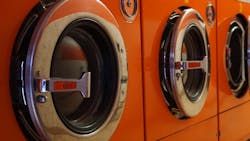Having the latest technology in place can instantly become a key differentiator for a manufacturer. However, such investments require fully understanding the end goal before making the commitment.
Of course, technology is powerful once combined with the business expertise. As part of Unilever’s ongoing digital transformation, two powder towers in Indaiatuba, Brazil and Guayas, Ecuador are now part of the digital factory environment. These intelligent towers can now operate remotely, meaning staff can safely oversee the manufacturing process while working from home.
During this implementation, the strengths of process engineering, analytics, and automation were very well synchronized in order to develop a final solution that fits to the operation’s needs. Finally, the ability to operate the intelligent tower and adjust operating parameters was placed back into the hands of the experts on-site.
Sarah Loftus, digital engineering director at Unilever says, “The key to implementing this project effectively was to draw on local and global expertise bringing together the strengths of process engineering, analytics, and automation. Using these in synchronization, we were able to develop a technology solution that fit the operation’s needs. We have achieved a solution that can be deployed across our laundry powder towers, as well as scaled across similar technology within the business. We are proud of this progress in the digital transformation of Unilever’s supply chain.”
Lessons learned? Simply put, it is important to create a team that is able to work together across organizations, functions, roles, and languages. As the main users of the final solution are process engineers and operators on site, making sure they were part of this development was key to the successful implementation and adoption of the technology. For Unilever, building intelligent towers was a collaborative project that involved local and global expertise. There was a clear purpose and everyone involved focused on achieving the end result. This was not a project for a single deployment, but for a solution that could be multiplied and scaled many times over across similar technology elsewhere in Unilever.
Looking deeper
- To produce laundry powder detergent, such as OMO, Comfort and Surf, the ingredients are sprayed into a drying tower, which is blasted with hot air to turn it into laundry powder.
- Until recently, operators were manually controlling the moisture content of the powder in the towers. The challenge was to get it just right to ensure product quality, making sure the powder was not under-dried or over-dried.
- As part of Unilever’s digital transformation, these ‘Intelligent Powder Towers’ now use algorithms to manage production. The algorithms can simulate different scenarios and predict optimal outcomes based on artificial intelligence and machine learning.
“Now the technicians in the control room can focus on more strategic decisions regarding production and use data intelligence to improve the process, instead of having to constantly monitor each process parameter. The insights are all in one place, accessible through a Power BI dashboard and the Unilever Digital Factory app, which enables faster decision making based on real-time data to optimize the performance of the tower,” explains Daniel Correia, digital manufacturing manager LATAM, Unilever.
Enabling remote control
While industrial assets have been remotely controllable for some time, this is the first time that automation and remote control are done in combination with advanced analytics and machine learning. This allows Unilever to respond to consumer demand for laundry products while keeping operators safe while capitalizing on opportunities to up-skilling the team. This scalable technology has also contributed to Unilever’s sustainability commitments. Specifically, by making the towers intelligent, Unilever has reduced energy consumption by over 10% and reduced the carbon footprint by up to 10%.
Like most projects, the process of creating intelligent powder towers was completed in sprints. However, the need for remote operation was crystallized during Covid-19. From the on-set of the Covid-19 pandemic, digitalization accelerated to meet the challenges of the new normal. Unilever immediately implemented safety measures, including social distancing in its factories, and sent many laundry tower operators to work from home to protect their health. The new intelligent technology meant that for the first time, that powder towers could be operated remotely and safely from technicians’ homes, allowing them to control the towers optimal temperature and operating conditions if required.
The technology also provides the capability to operate equipment around the world from different countries. This allows regional and local teams to work together across continents to optimize processes, put systems in place and troubleshoot. With global travel restrictions, the implementation of the project was supported by a virtual team of technical experts.
About the Author
Peter Fretty
Managing Editor
As a highly experienced journalist, Peter Fretty regularly covers advances in manufacturing, information technology, and software. He has written thousands of feature articles, cover stories, and white papers for an assortment of trade journals, business publications, and consumer magazines.
